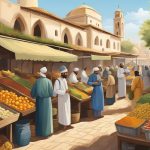Family dynamics and roles have been integral to the fabric of Mediterranean societies for centuries, shaping everything from daily routines to long-term decision-making. Historically, families in this region have tended to be larger and more extended than their Western counterparts, often encompassing multiple generations under the same roof.
A deep sense of familial loyalty and responsibility characterizes these households, with each member playing a specific role that supports the collective unit. Such arrangements have fostered a culture rich in tradition, where the sharing of tasks, from child-rearing to business endeavors, is both a necessity and a source of strength.

In examining the family-centric approach of Mediterranean cultures, it’s notable how diet and culinary practices play a role in reinforcing family bonds and traditions. Meals are typically seen as a time for togetherness and connection, further illustrating how foundational family is to societal functions.
The diet itself, renowned for its health benefits, consists of foods naturally rich in nutrients and, in many variations, already aligns with gluten-free requirements. Staples such as olive oil, lean meats, seafood, legumes, fresh fruits, and vegetables are an intricate part of this dietary pattern, offering options that are both naturally gluten-free and nourishing.
Understanding these aspects becomes crucial when exploring the essence of Mediterranean societies. The emphasis on a gluten-free diet within this context not only highlights the increasing awareness of dietary restrictions and health concerns but also marks a shift in how traditional diets are adapting to contemporary needs.
Even within this framework, the familial structure continues to be a strong influence on the evolution of food practices, preserving the connection between the health of the family and the foods they consume.
Table of Contents
Historical Context of Family Dynamics in Mediterranean Societies
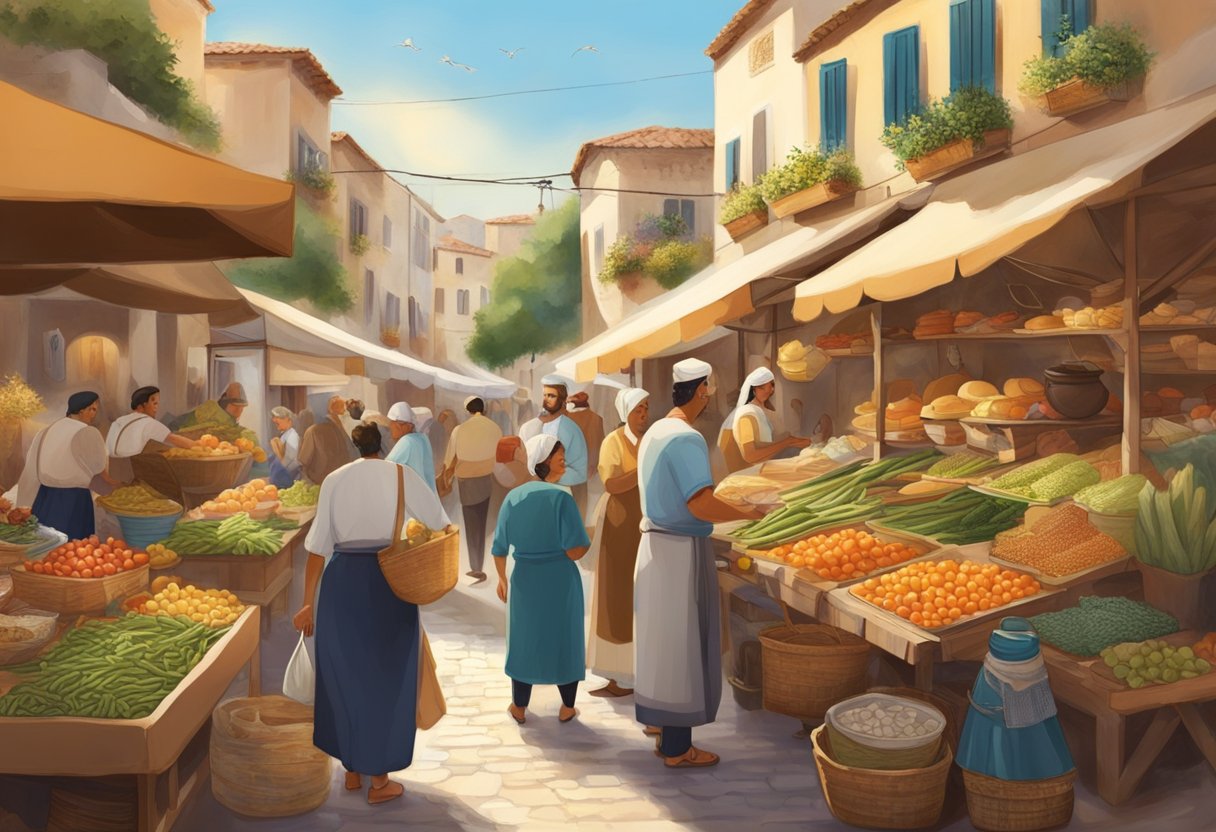
Mediterranean societies have historically been centered around family, with a focus on established roles and hierarchical structures within each household. Extended families often lived together or in close proximity, fostering a tight-knit community where family was the primary social unit.
Family Dynamics:
- In ancient times, the family was the core social institution.
- Patriarchy was prevalent, with the pater familias having legal authority over the family.
- Extended families were common, with multiple generations sharing responsibilities.
Family Structure:
- Beyond the nuclear family, kinship groups influenced social interactions and the distribution of wealth.
- Marriages often served to strengthen family ties, political alliances, or economic status.
These family dynamics were essential in shaping the social, economic, and political landscapes across the Mediterranean region. Key tasks like farming, trade, and education were carried out within the family sphere, transmitting skills and knowledge down generations and reinforcing the family-centric cultural paradigm.
Family-Centric Approach:
- Collectivism over individualism: Family needs took precedence over personal desires.
- Resource sharing was typical, and lineage determined social hierarchies.
Throughout Mediterranean history, the family unit has represented stability and continuity, a tradition that influences the region’s cultures even in contemporary societies.
Characteristics of Mediterranean Family Systems
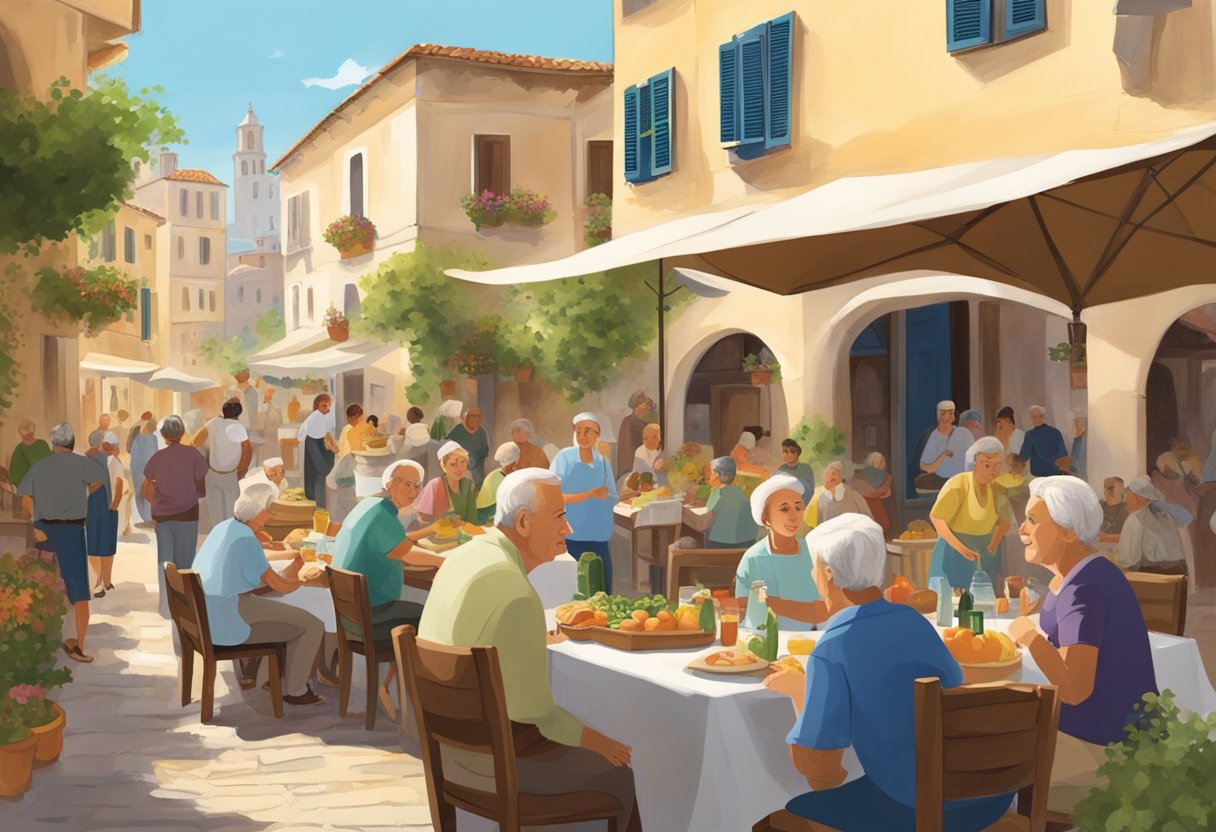
Mediterranean family systems are unique in their structure and the emphasis they place on extended kinship networks. They are characterized by a family-centered approach that prioritizes familial relationships and obligations.
Role of Extended Family
In Mediterranean societies, the extended family, including grandparents, aunts, uncles, and cousins, plays a pivotal role in daily life. Extended family members often reside in close proximity to one another, creating a strong support system. They frequently collaborate on economic activities and provide social welfare. This collective approach ensures security and well-being for all family members, particularly the elderly and children who are cared for within this broad family network.
Cultural Factors Influencing Family Roles
Cultural norms in Mediterranean societies significantly influence family roles. Traditionally, roles are clearly defined, with men often responsible for external affairs and women for internal family duties. However, these roles are evolving due to socio-economic changes. Cultural factors, such as religion and social expectations, continue to shape the interactions and responsibilities within the family unit. Despite changes, the family structure remains hierarchical and deeply interconnected, with a strong emphasis on upholding family honor and collective goals within the community.
Family-Centric Approach in Practice
In Mediterranean societies, the family-centric approach to health and lifestyle, such as a gluten-free diet, deeply influences decision-making processes and the balance between individual autonomy and interdependence.
Decision-Making Processes
Family in Mediterranean cultures often act as a cohesive unit, deliberating on important health decisions together, including dietary choices. This collectivist perspective ensures that when adopting a gluten-free diet, for example, all members understand the health benefits and the importance of preventing cross-contamination for those with celiac disease or gluten sensitivity. Literature reveals that successful initiatives involving family caregiving incorporate inclusive communication models suitable for extended families, which increases the quality of care and outcomes.
Autonomy and Interdependence
While family-centered decision-making is predominant, individuals within the family unit also retain a level of autonomy. They contribute personal preferences and insights, particularly regarding food choices within a gluten-free Mediterranean diet, ensuring that meals are both healthy and enjoyable for everyone. Simultaneously, interdependence is recognized, as shared responsibilities within the family include food preparation and maintaining a supportive environment for adherence to dietary regulations. The cooperation of family members is not just preferred but often essential to facilitate a manageable and efficient gluten-free lifestyle.
Healthcare and Family Involvement
In Mediterranean societies, healthcare is deeply intertwined with family involvement, reflecting a strong family-centric approach. Family members often play a significant role as caregivers and are integral in end-of-life care decisions.
Role of Caregivers in Mediterranean Societies
Caregivers in Mediterranean societies are typically family members who provide not only physical support but also emotional sustenance to the patient. They are the cornerstone of a family-centered approach to healthcare, involving themselves in various facets of patient care. This extends from routine management of chronic conditions to making informed decisions on behalf of their loved ones, often in consultation with healthcare professionals. Families also contribute to home care preparations, ensuring that the environment is conducive to the patient’s recovery or comfort.
End-of-Life Care and Family Dynamics
At the stage of end-of-life care, family dynamics become particularly pronounced. Decisions regarding treatments and interventions require collective family input with a deep respect for the patient’s wishes. These choices include considering palliative care options or pursuing alternative treatments aligned with a gluten-free Mediterranean diet when appropriate. The family’s involvement seeks to honor the patient’s life, providing a sense of dignity and comfort during their final moments.
Impact on Specific Patient Groups
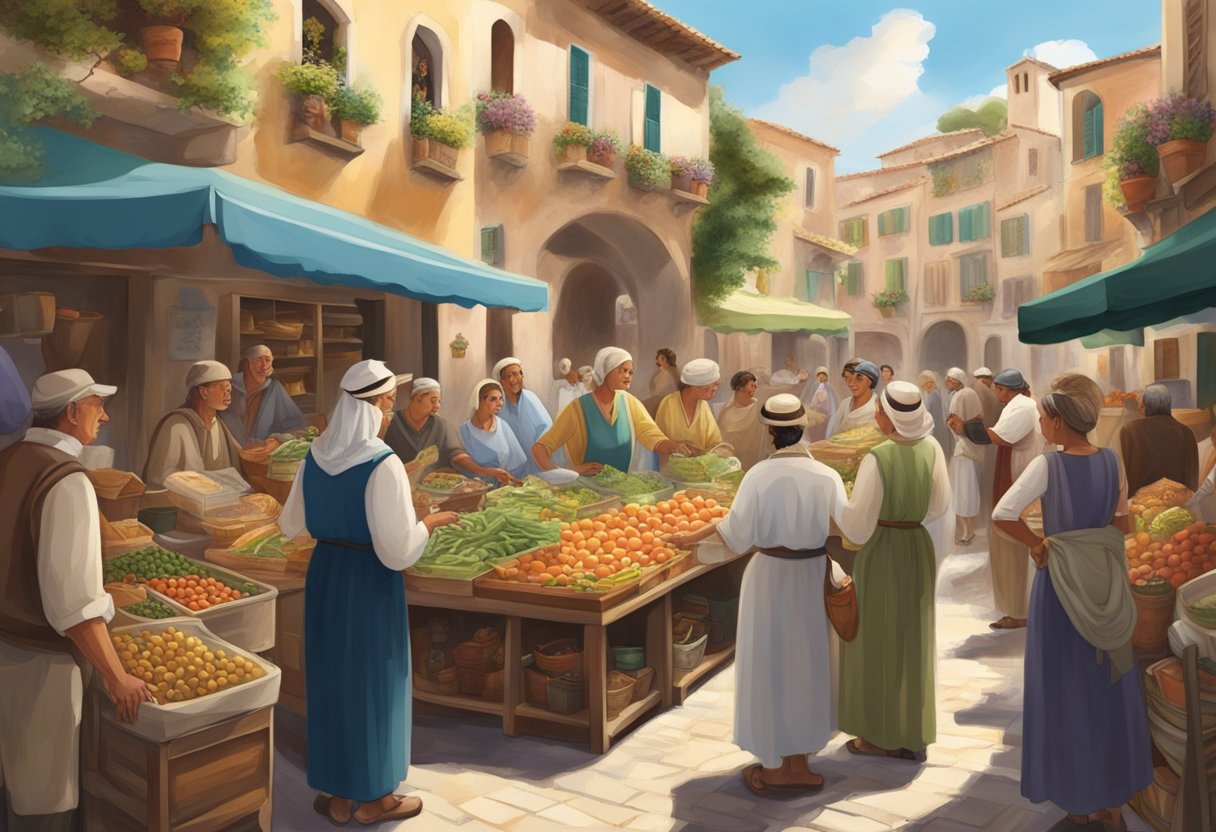
In Mediterranean societies, family plays a pivotal role in healthcare, especially when managing chronic conditions such as cancer or during palliative care. The involvement of family members can significantly influence the outcomes for patients facing these serious health challenges.
Family Dynamics in Cancer Care
Cancer patients often rely heavily on their families for support, emotionally and financially. In the context of Mediterranean cultures, family involvement is seen as an integral part of the treatment process. Studies have shown that patients who are supported by a closely-knit family network often experience a better quality of life and can navigate the complexities of cancer treatment more effectively. Family members frequently engage in decision-making and work in tandem with healthcare professionals to ensure the patient’s dietary needs are met, including adherence to a gluten-free Mediterranean diet which is rich in fruits, vegetables, legumes, and lean proteins.
Palliative Medicine and Family Roles
In palliative medicine, the focus is on providing relief from the symptoms and stress of a serious illness. The goal is not just to improve the quality of life for the patient but also to support the family members coping with the reality of a terminal illness. Within this framework, families in Mediterranean cultures often take on significant caregiving roles, with family values dictating the provision of comfort and emotional sustenance. The support from the family collective can be particularly crucial in adhering to dietary preferences, such as maintaining a gluten-free regimen, which may play a role in managing symptoms and contributing to patient comfort.
Current Challenges and Future Directions
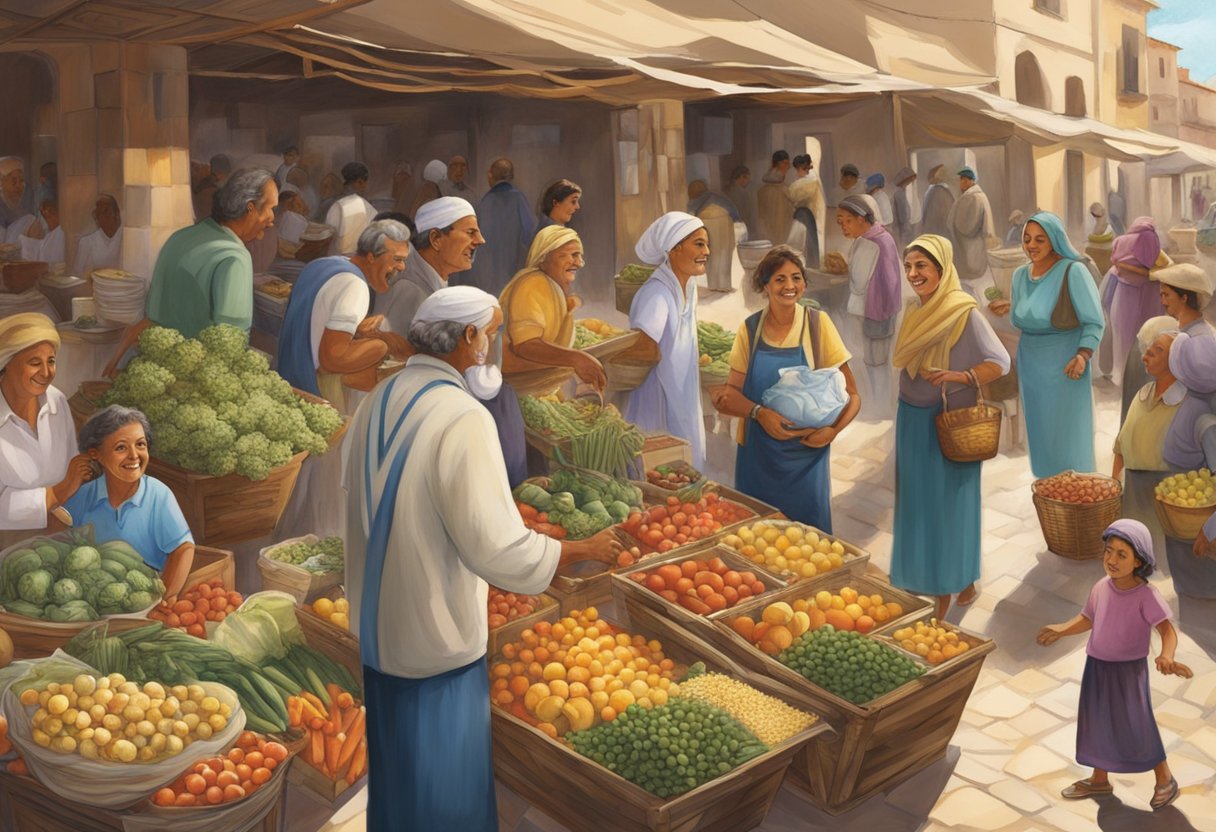
As Mediterranean societies grapple with the balancing act of preserving traditional family structures while adapting to a rapidly globalizing world, they face unique challenges and must consider future avenues for research.
Adapting to Modernization and Global Influences
Mediterranean family dynamics are traditionally characterized by strong family bonds and an emphasis on collectivism. However, the forces of modernization and global influences present challenges as these societies strive to maintain their cultural identity. One key aspect of this struggle is the interplay between traditional family roles and the pressures of modern labor markets. This tension is particularly evident in the labor-market participation of women, who frequently balance multiple roles within and outside the household. As Mediterranean countries continue to experience these shifts, policies aiming at work-family reconciliation might need to be reevaluated to better support these dual roles.
Future Research in Family Dynamics
The shifting landscapes of family structures require a reformulated approach to understanding and studying family dynamics within Mediterranean societies. Research must delve deeper into the impacts of cultural orientation gaps within family units, a concept well-discussed in current literature. Subsequent studies could investigate how familial roles evolve in response to changing socioeconomic conditions and how these roles are communicated and taught to newer generations. The integration of family systems perspectives with cultural studies could offer a comprehensive outlook on these transformations, providing insights into the mechanisms that sustain or alter familial interactions in the wake of modern influences.


